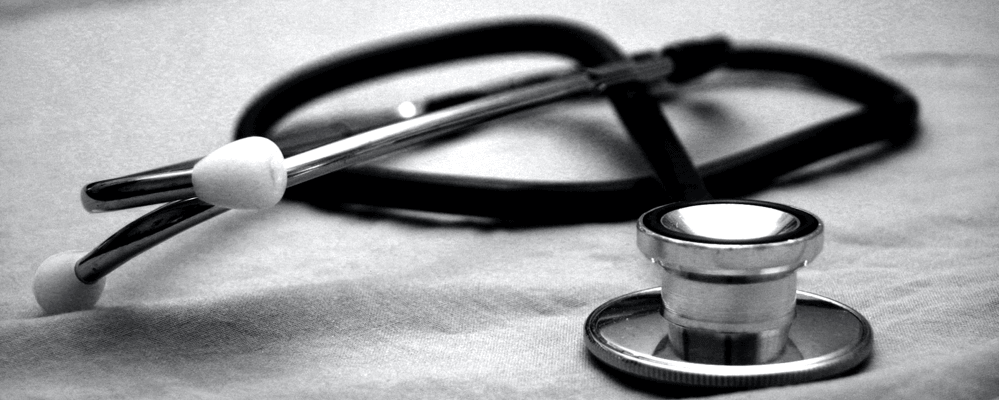
Did you know it’s possible to have a no-deductible health insurance plan? While most healthcare consumers don’t opt for this option, it could be the ideal plan for you.
What does $0 deductible mean? Is it good to have no deductible for health insurance? It's best for people who visit the doctor often since they don't have to pay out-of-pocket for any covered visits or procedures.
However, zero dollar deductible health insurance comes with higher premiums. Scroll down to explore the $0 deductible health insurance meaning and pick out an affordable plan that fits your budget and lifestyle.
If you want to see the best health insurance options for you, enter your ZIP code into our free health insurance comparison tool to view your options.
What is a health insurance deductible?
What does no-deductible health insurance mean? Before we can dive into the nitty-gritty of no-deductible health plans, you have to know what a deductible is in the first place.
Per HealthCare.gov, an insurance deductible is the set amount of money you need to pay out of pocket for covered healthcare services before your insurance plan kicks in.
For instance, if you have a $3,000 annual deductible, you’ll need to pay that $3,000 for covered services before your insurance provider begins to pay.
Some plans have separate deductibles for other services, such as prescriptions. Family plans often have an individual and a family deductible.
Once you hit the deductible point — it could be from a single trip to the doctor or several — the only covered services you have left to pay for the rest of the year may be a copayment or coinsurance.
So what is a $0 deductible? If your health insurance has zero deductible, you pay nothing for covered medical costs except a copay or coinsurance if required.
That said, there are some cases where your plan may pay before you've met your deductible, including check-ups for disease management programs. Certain preventative benefits will also be fully covered.
Pros and Cons of Zero Deductible Health Insurance
What is no-deductible health insurance? With a zero-deductible plan, insurance cost-sharing begins immediately, whereas, with other plans, you must first hit the set deductible.
For example, let’s say you have a covered medical screening that costs $5,000. With a zero-deductible plan, the insurer would pay the full rate for the screening from the outset.
Is no deductible a good thing? If that’s the case, then why doesn’t everyone get a no-deductible plan?
In a word, it comes down to tradeoffs. Yes, you may not have a deductible, but you can expect to pay more in other areas, including:
- Premiums – Generally speaking, the lower the deductible, the higher the monthly premium. So, you can expect to pay more every month.
- Other payments – In addition to a deductible, a covered healthcare service has other costs, such as:
- Copay – A specific fee for a particular service or treatment.
- Co-insurance – The percentage that insurance agrees to pay for a certain medical service.
- Maximum out-of-pocket expenses – The most you have to pay in deductibles, copays, and coinsurance. Once this figure is hit, insurance covers 100% of the remaining costs.
- Exclusions – No-deductible plans may be limited by the number of providers within the network. So, if you go out of network or undergo uncovered healthcare services, you may have to pay the entire bill.
When is it better to have no deductible for health insurance? A zero-deductible health insurance plan is a better option for someone who expects to have high medical expenses each year or who requires several prescriptions.
Save Money by Comparing Insurance Quotes
Compare Free Insurance Quotes Instantly
Secured with SHA-256 Encryption
Deductible vs. No-Deductible Health Insurance
What does $0 deductible mean for health insurance? Most types of health insurance plans come with no-deductible options that pay for all covered costs. The only diffrence between a regular plan and health insurance with no deductible is the monthly premium — choosing no deductible is more expensive.
What does it mean to have no deductible? When you buy health insurance, no deductible refers to what you pay for coverage, not the coverage you have.
The specifics of what a plan covers depends on the insurer and the plan itself. Every health insurance plan is expected to cover some basic treatments and services, though at differing levels and costs.
Basic benefits of $0 deductible health insurance and deductible plans include:
- Outpatient care – This refers to healthcare consultations, procedures, or other services that do not include an extended stay in the hospital or within a medical facility. Although the duration may vary, outpatient care doesn’t involve a night’s stay.
- Hospitalization – Sometimes referred to as inpatient care, hospitalizations typically are more serious and require a patient to stay overnight. Maternity and newborn care are often grouped under this umbrella and can include labor, delivery, and prenatal services.
- Emergency services – If a patient is experiencing severe illness or injury, healthcare coverage can include visits to trauma centers, hospital ERs, or specialty care services.
- Lab tests – Laboratory tests help doctors detect, diagnose, or monitor diseases, diseases processes, or figure the proper course of treatment. This may include X-rays, Pet scans, urinalysis, blood tests, and more.
- Prescription drugs – Some plans may have a separate deductible for prescriptions. That said, these are pharmaceutical medications prescribed to a patient by the doctor, and that legally require a medical prescription to be dispensed.
- Preventative treatment – Checkups, screenings, and physicals are all aspects of maintaining health and proactively searching for potential health issues before they worsen.
- Chronic disease management – Certain chronic diseases, such as diabetes, require regular screenings and maintenance to monitor the condition and combat its ability to negatively impact a patient’s health.
Is zero deductible good health insurance? It is the more affordable option if you have chronic health issues, but compare rates near you to find the best plan.
No-Deductible vs. No-Copay Health Insurance
No-deductible and no-copay health insurance plans offer different approaches to reducing out-of-pocket costs:
- No-Deductible Insurance: You don't pay an upfront cost before your insurance starts covering medical expenses.
- No-Copay Insurance: Eliminates the fixed fee (copay) that you usually pay for services like doctor visits, prescriptions, or specialist consultations.
The no-deductible health insurance meaning applies to the total cost of covered care, while copay is the visitation fee. No-deductible insurance plans can still have copays, and most no-copay plans have deductibles.
Why have a high deductible health insurance plan?
Is no-deductible health insurance good or bad? The type of plan best suited for you is largely contingent upon several factors, including your health, age, and financial situation.
Typically, young and healthy people prefer to have a high deductible plan. Such a person rarely goes to the doctor for anything besides a yearly checkup or an emergency medical experience. They plan on using it infrequently at most, so paying a much lower monthly premium is more beneficial for their finances.
However, the consumer makes a financial risk figuring there's only a slight chance they'll need to go to the doctor several times or pay for a medical service.
For instance, let’s say a fit 20-year-old man with clean health history has two plan options:
- A plan with a monthly premium of $600 for a zero deductible plan
- A plan with a monthly premium of $100 with a $5,000 deductible
As long as he has less than $6,200 of medical coverage, the second plan would likely be the more affordable option. And that doesn’t even account for the other potential costs or constraints of a zero-deductible plan. However, for an older person with preconditions who sees their doctor regularly, the first plan will likely be the better option.
So is no deductible good or bad? Put simply, having a high deductible plan, or a zero deductible plan isn’t bad in and of itself. It just depends on the specifics of your health and finances. What works for one healthcare consumer may be inadequate for another, and vice versa.
To determine the best no-deductible health insurance coverage, you have to compare and contrast plans according to the annual cost of premiums, copays for doctor appointments, out-of-pocket maximums, and payments made toward the deductible.
Keep in mind that there are ways you can save on health insurance, including looking for discounts offered by your provider or using fitness trackers to save on health insurance.
Types of Individual Health Plans
There are several types of health insurance with no deductible and no copay. This is why it’s smart to shop around and review all of your options.
Basic health plans include:
- Preferred Provider Organization (PPO) – A PPO offers healthcare consumers a network of healthcare providers to use for their medical care. The providers within the network agree to provide care to plan members at an agreed-upon rate. With this type of plan, you pay less for providers within the network and more for providers outside of the network.
- Health Maintenance Organizations (HMO) – A HMO limits the healthcare coverage to care from doctors who work for or contract with an HMO. These often are more limited and regionally focused but provide cheaper rates. Additionally, they focus on providing prevention and wellness care to its members.
- Point of Service Plan – A point of service plan combines elements of a PPO and an HMO. It uses a managed care foundation that offers lower medical costs in exchange for less choice. Like an HMO, policyholders have to select a primary care doctor from within the plan’s network. Like a PPO, out-of-network services are covered but at a higher rate.
- Catastrophic coverage – One of the lowest cost options available, these are the most basic type of health insurance. They provide coverage against major injuries and illnesses but are limited to 3 basic visits per year up to the deductible. These types of plans are ideal for those with enough savings to cover most of their medical costs.
Employers can also provide a no-deductible health plan for companies, staff, and their families.
Find Affordable Health Insurance With No Deductible
What is no-deductible health insurance? This type of plan covers out-of-pocket costs for medical procedures and visits listed in the policy. It's ideal for people with chronic health issues or who may not be able to afford expensive medical bills.
Having medical coverage is an important way you can maintain your long-term health. If you already suffer from chronic health issues or require several prescriptions, a no-deductible health plan may be right for you.
However, a $0 deductible in health insurance means higher premium payments. The best way to find the right plan is to compare different healthcare providers in your area.
Selecting the right type of healthcare plan can be a stressful process. Between the industry jargon and the sheer number of available options, you may have trouble determining which type of insurance is which, let alone deciding what overall healthcare plan is best for you.
To see your options, simply enter your ZIP code into our free insurance quote comparison tool and compare and the available healthcare plans in your area.
Frequently Asked Questions
What does $0 deductible mean in health insurance?
Health insurance with zero deductible means that the policyholder does not have to pay any money out of pocket towards covered medical expenses. The insurance plan begins covering costs immediately without requiring the policyholder to meet a specified deductible amount first
Do all health insurances have deductibles?
Most health insurance comes with a deductible unless you buy a health plan with no deductible. Health insurance without a deductible is typically more expensive.
What are the two most common health insurance plans?
Preferred provider organization (PPO) and health maintenance organization (HMO) plans are the two most popular health plans. Either of these can be zero deductible health insurance depending on the type of plan you choose.
How much is an insurance deductible?
Deductibles can range from hundreds to tens of thousands of dollars. It depends on your insurance policy, health needs, and budget. In most cases, plans with lower annual deductibles have higher monthly premiums.
Is $0 deductible health insurance good or bad?
Low or no-deductible health insurance is good for people who need long-term healthcare or expect to have a lot medical bills in the near future. But because health plans with no deductible are more expensive, they aren't for everyone.
What does no deductible mean on dental insurance?
The no deductible meaning is the same — insurance automatically pays for covered dental procedures without the policyholder paying out of pocket.
What does no deductible for office visits mean?
This means you can see an in-network doctor and the insurance will pay its share immediately, without you needing to meet a set amount of out-of-pocket expenses. However, you might still have to pay a copayment or coinsurance for the visit.
How does a $0 deductible work?
With a $0 deductible, coverage kicks in right away. As soon as you incur a medical expense that is covered under your policy, the insurance company starts paying according to the terms of the plan.
How much does zero deductible health insurance cost?
No-deductible health insurance costs between $500-$700/mo depending on age, gender, and medical history.
Does no deductible mean no copay?
Health insurance with no copay is not the same as no-deductible insurance. Insurance with no deductible can still have copays, since these are fixed fees you pay for medical visits whether you have or meet your deductible or not.
Save Money by Comparing Insurance Quotes
Compare Free Insurance Quotes Instantly
Secured with SHA-256 Encryption
Photo by Hush Naidoo Jade Photography on Unsplash

